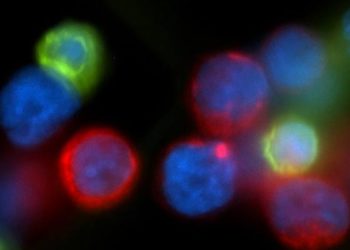Neoadjuvant chemoradiotherapy demonstrates a long-term survival benefit in pancreatic cancer patients when compared to upfront surgery
1. The use of a neoadjuvant gemcitabine-based chemoradiotherapy before surgery and adjuvant gemcitabine increased the overall survival rate when compared to upfront surgery and adjuvant gemcitabine.
2. Patients in the neoadjuvant chemoradiotherapy groups had more R0 resections than patients receiving upfront surgery and adjuvant gemcitabine.
Evidence Rating Level: 1 (Excellent)
Study Rundown: Past randomized control trials comparing perioperative treatments in pancreatic cancer have indicated that long-term follow-up is required to detect a significant survival difference. This study reported the long-term results of the PREOPANC trial, where patients were randomly assigned to receive neoadjuvant gemcitabine-based chemoradiotherapy before surgery and adjuvant gemcitabine, or upfront surgery and adjuvant gemcitabine. The primary endpoint was overall survival (OS) by intention-to-treat (ITT) analysis. Efficacy was also compared across resectable and borderline resectable pancreatic cancer patients. While median survival and a follow-up of 27 months showed no significant survival benefit, the 3-year and 5-year follow-ups indicated a clinically relevant increase in OS. Superiority was preserved across resectable and borderline resectable disease subgroups of comparable baseline characteristics. Resection rates were compared between both groups and a lower proportion of patients in the neoadjuvant group underwent resection. Patients who forwent resection presented with an aggressive and likely metastatic cancer during neoadjuvant therapy, whereby resection would not have helped and was thus avoided. Disease-free survival, distant metastases-free interval, locoregional failure interval and R0 resection rates were all improved in the neoadjuvant group. Both groups had comparable rates of serious adverse events. Limitations to this study include the small sample size, the use of gemcitabine as an adjuvant, since it is an old regimen considered to be out of date, and generalizability, as trials were only done in the Netherlands. The strength of this study is that it has limited bias given the design and shows a long-term benefit in overall survival. Overall, this study demonstrated that the use of neoadjuvant gemcitabine-based chemoradiotherapy before surgery and adjuvant gemcitabine is a viable long-term treatment option for pancreatic cancer patients.
Click to read the study in the Journal of Clinical Oncology
Relevant reading: Borderline resectable pancreatic cancer: definitions and management
In-Depth [randomized control trial]: This multicenter, phase III randomized control trial conducted in the Netherlands included 246 patients with pancreatic cancer; 119 patients in the neoadjuvant chemoradiotherapy group and 127 in the upfront surgery and adjuvant group. Patients were randomly assigned to receive upfront surgery and adjuvant gemcitabine, or neoadjuvant gemcitabine-based chemoradiotherapy preceding surgery and adjuvant gemcitabine. The median OS by ITT in the neoadjuvant chemoradiotherapy group was 15.7 months (95% confidence interval [CI], 12.9 to 20.6) and was 14.3 months (95% CI, 12.7 to 17.9) in the upfront surgery and adjuvant group (hazard ratio [HR] 0.73; 95% CI, 0.56 to 0.96; P=0.025). Survival estimates for the neoadjuvant chemoradiotherapy group at 3 years were 27.7% (95% CI, 20.7 to 37.1) and were 16.5% (95% CI, 11.1 to 24.4) for the upfront surgery and adjuvant group. Survival estimates for the same groups at 5 years were 20.5% (95% CI, 14.2 to 29.8) and 6.5% (95% CI, 3.1 to 13.7), respectively. Superiority was maintained across resectable and borderline resectable disease subgroups of comparable baseline characteristics. Secondary endpoints measured were disease-free survival (HR, 0.69; 95% CI, 0.53 to 0.91; P=0.009), distant metastases-free interval (HR, 0.74; 95% CI, 0.54 to 1.03; P=0.070), and locoregional failure-free interval (HR, 0.57; 95% CI, 0.39 to 0.83; P=0.004). Resections rates were 61% and 72% for the neoadjuvant chemoradiotherapy group and upfront surgery group, respectively. R0 resection rates by ITT were 41% and 28% for neoadjuvant and upfront surgery, respectively (P=0.025). Overall, neoadjuvant gemcitabine-based chemoradiotherapy demonstrated a long-term survival benefit in pancreatic cancer patients when compared to upfront surgery.
Image: PD
©2022 2 Minute Medicine, Inc. All rights reserved. No works may be reproduced without expressed written consent from 2 Minute Medicine, Inc. Inquire about licensing here. No article should be construed as medical advice and is not intended as such by the authors or by 2 Minute Medicine, Inc.







